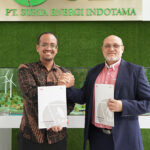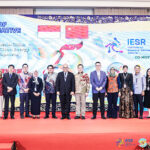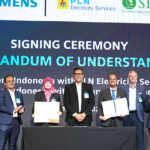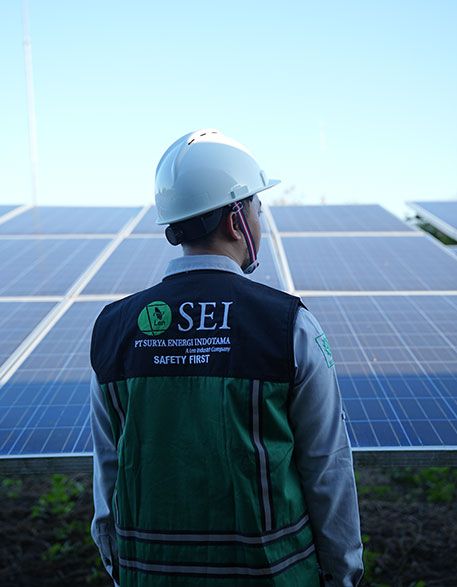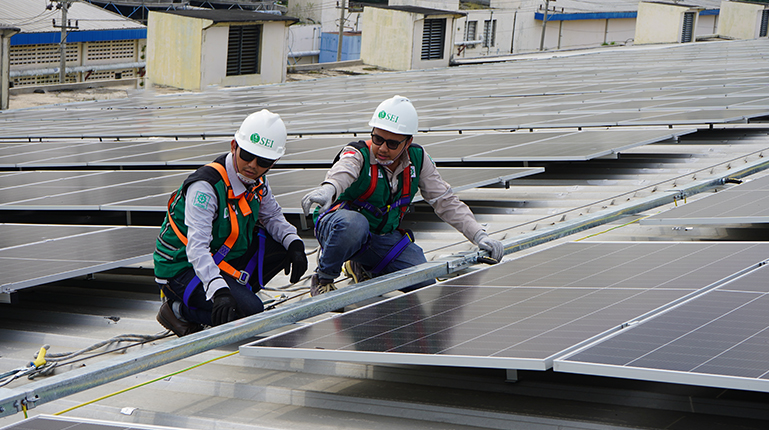
1.7 Million Green Job Opportunities Await in 2030
Indonesia, as an archipelagic country with abundant natural resources, has extraordinary potential in developing the new and renewable energy (EBT) sector. Through the National Energy General Plan (RUEN), the government is targeting a gradual energy transition in order to realize national energy security and reduce dependence on fossil fuels. The year 2030 is an important milestone, where the projection of EBT capacity and contribution is expected to experience a significant spike. In addition to environmental benefits, this transition also has the potential to create millions of green jobs. Based on Greenpeace's calculation method, the following is a projection of the potential for job growth from each EBT sub-sector in Indonesia until 2030:
1. Geothermal

Indonesia is one of the countries with the largest geothermal reserves in the world. Geothermal development not only supports carbon emission reduction, but also opens up jobs in the fields of exploration, power plant construction, and operation and maintenance.
2. Hidropower
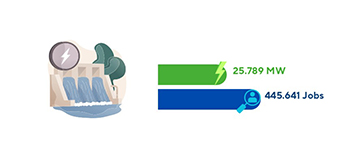
With its river-rich and mountainous topography, Indonesia has great potential in utilizing hydropower. Large-scale and micro-hydro projects can increase electricity access in remote areas while absorbing local labor.
3. Bioenergy

Biomass resources from agriculture, plantations, and organic waste make bioenergy an inclusive, sustainable energy solution. This sector also supports the rural economy through the use of agricultural waste as fuel.
4. Solar Energy

Solar energy is one of the fastest growing renewable energy sources because the technology is increasingly affordable and easy to implement. Installing solar panels on rooftops, industrial buildings, remote areas and public facilities will provide jobs for more people.
5. Wind Energy
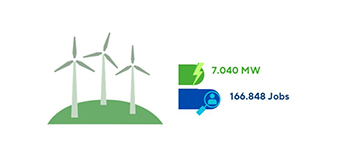
Coastal and highland areas in Indonesia have great potential for wind power development. Wind energy development requires technical expertise and will drive workforce growth in the engineering and maintenance sectors.
6. Renewable Energy

Included in this category are energy from ocean waves, tides, and other innovative technologies. Although still in its early stages, the potential of this sector should not be ignored as part of Indonesia's future energy portfolio.
With a total additional capacity of 69,652 MW from all types of renewable energy, Indonesia has the potential to create around 1,721,435 green jobs by 2030. This figure reflects a great opportunity to combine the economic development and environmental protection agendas simultaneously.
The transition to clean energy is not only an ecological necessity, but also a strategic opportunity to encourage inclusive and sustainable economic growth. The government, private sector, educational institutions, and civil society need to collaborate to ensure workforce readiness through vocational training, increasing human resource capacity, and aligning the education curriculum with the needs of the renewable energy industry.
2030 is not just a target, but the starting point for Indonesia's clean, green, and opportunity-filled future.
